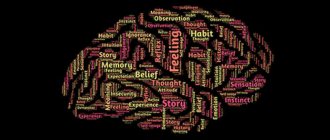What is the difference between a dream and a goal in life?
A dream is a romanticized and distant concept. A goal in life is a specific life goal that you strive for. The main difference is that a dream is when a person dreams about the future and does nothing to realize it. If you are actively trying to make your dream come true, that is already a goal.
Dream or goal?
Examples of dreams rather than goals:
- become rich (how, when, how rich?);
- achieve ideal physical shape (the ideal is different for everyone);
- become an astronaut (1 in 10 people flies into space after serious preparation);
- Travel all around the world;
Here are some goals in life:
- become a volunteer in a public organization, help people or animals;
- pick up a child from the orphanage and provide him with a happy life;
- become a professional gymnast/gymnast;
- sell your own creativity for $1 thousand;
- visit 10-100 countries/cities of the world;
When you outline a clear action plan for yourself (when, how much, how), you take the first step towards your goal. This is called defining a goal in life.
The key to a meaningful life
How is this hidden revealed? In fact, it is “hidden” in plain sight, literally under our noses. People speak in key words, conveying the meanings by which the psyche lives. Details of appearance, facial expressions, gestures - everything reflects how a person perceives fragments of existence through his mental properties.
By observing this coordinated interaction of particle and wave, you reveal all the cause-and-effect relationships. This applies to both the destinies of individual people and global processes occurring in society. What is happening around ceases to be chaos, “white noise”, the fuss of people from scratch. A single plan is revealed that harmonizes the world into one whole, and the answer is revealed - why I live in it.
All you need is a key - a universal “decoder” that will allow you to recognize not just the sounds made by people, but the meanings behind them. You can get it and learn how to use it at the training “System-vector psychology” by Yuri Burlan.
This forever and radically changes your perception of reality. Allows you to realize your unique purpose and be happy.
Author Evgenia AstreinovaCorrector Dalia Konysheva
The article was written using materials from Yuri Burlan’s online training “System-vector psychology”
March 27, 2019
Views:
4679
Tags: psychology - I feel bad
What goals can there be in life?
Human aspirations are divided into:
- long-term;
- short-term;
Any goal implies a clear deadline for completion. Short-term goals are achieved after a day, a week, a month. Long-term ones take several months or years to complete.
Short term goals in life
A person seeking to find the meaning of his existence must set small goals for himself. This way you will know what is feasible for you and what is difficult or impossible. For example:
- give up several types of unhealthy foods starting tomorrow (flour, sweets);
- draw up a motivation sheet before the evening;
- sign up for a gym within a month;
Long term goals in life
Long-term goals can be set when several steps have already been completed. For example, you want a good car, but with your current income this is impossible. Then you start looking for a high-paying job and find a suitable option for yourself. And here an obstacle appears: the desired position requires knowledge of the language, the ability to drive a vehicle, and programming skills. Then you set yourself a long-term goal:
- learn English to a conversational level in 4 months;
- pass exams at a driving school;
- learn a programming language in six months;
- This is called long-term planning.
How to track and evaluate the status of your life goals: the role of responsibility
We write down our goals to formalize them in one way and in another to give us a sense of personal responsibility for results.
The first type of responsibility is internal, and psychologists suggest that it motivates us to continue if those goals are consistent with our personal values. This is all well and good, but how can we track and evaluate our progress?
Tracking Life Goals
First, as already stated, we can define our goals and create clarity around them. Prioritization allows us to focus on the main important tasks.
If you want to set deadlines for each small sub-goal, then go for it - it adds another layer of personal responsibility and is commonly used in project management situations.
Important! When you have specific goals, you can better evaluate your progress. And from here we can adjust our generated paths accordingly to maximize our chances of success.
Main goals in human life
We strive to satisfy basic needs: food, comfort, safety, entertainment. The main goals in a person’s life are a happy family, a big house and a carefree old age. All of this refers to long-term goals, in order to progress towards which you need to complete daily short-term ones.
Main goal in life: philosophy
Aristotle believed that the goal of human life is happiness, which consists of thinking and knowing. Thus, the main goal in life according to Aristotle is constant self-development.
L.N. Tolstoy agreed with Aristotle. He believed that the essence of life is self-improvement and personal development.
Kant wrote: “man’s existence has within itself a highest goal, to which, as far as it is in his power, he can subordinate all nature.” According to his thoughts, the purpose of the individual is to work for the good of society. When a person dies, only his works and his activities remain.
Male and female aspirations
A man's goals in life and a woman's goals are different. Men, on average, are inclined to extract resources, to fight for supremacy (in the financial market, in sports). The purpose in the life of an ordinary woman is associated with creative fulfillment, family, and motherhood. This is just a statistic, not a rule. There are ladies who dream of a sports career and financial success, and men who dream of a strong and large family.
Circle of life goals
There is a psychological technique that helps you determine what exactly is missing in your life. For this:
- Draw a circle on a piece of paper.
- Divide it into 8 sectors.
- Name them like this: “Hobbies”, “Health”, “Personal growth”, “Career”, “Family”, “Environment”, “Creativity”, “Recreation”.
- Think about each of these areas. What suits you most and what least? Draw each sector with colored markers or pencils.
- The 100% shaded segment shows your complete satisfaction with this area of life. And the one you leave empty reflects dissatisfaction and the need for change.
- Draw a similar circle nearby. Now fill it out with how you would like to feel in these areas.
- Compare what you want with what you actually have. Pay special attention to those areas where the difference is felt most acutely.
The exercise makes it clear which area of your activity has been left unattended. The circle of goals is a good technique that allows you to understand yourself and understand “what’s wrong with you.”
Planning life goals and how to prioritize
So you have a million things you want to accomplish. We don't need statistics to understand why writing adds some organization to everything, but active planning can also increase our motivation.
Personal strategic planning
According to Brian Tracy, moving from A to B is personal strategic planning. Simply put, his proposed approach takes the principles of organizational management and applies them to the personal sphere.
Rather than seeking to maximize return on investment (ROI), as we would in a corporate setting, we instead seek to increase our efficiency by reducing the physical, mental, and emotional energy that we might otherwise waste.
If traveling to every EU country is not your life goal, wouldn't it be more efficient to fly? Or could you take a few extra days on your next business trip? Two very logistical examples, but hopefully they illustrate the premise of personal strategic planning.
Priority of life goals
Prioritization is about identifying the most important life goals that you have developed and written down.
- Once you've formalized them by writing them down, rate them on a scale of 1 to 5 or 1 to 10. As long as you systematically apply the same ranking system to all of them, the most important ones should stand out.
- An alternative would be to divide them first into the areas that suit them best and then rank them within each category. What is your most important goal?
- Is it advisable to focus on five main goals? Or are three more important? Choose the ones that are most worthy of your energy - what will make you happier? What is most important to you personally in terms of your values?
- Planning. What subgoals have you identified? What resources will you need for each stage and when will you need them?
- Find a good, but not necessarily the best, time to start, as the best may never come. Then use a planner to work it all out.
Scientific evidence
The following figures from the world of science can be considered striking examples of goals. For example, Burress Skinner, while studying at Harvard, put himself under a very strict study regime, spending only 15 minutes a day on extraneous matters. Sounds impressive, doesn't it? An even more amazing example is Alexander Lyubishchev. Back in 1918, he set himself a life goal - to create a natural system of organisms. At that time he was 28 years old, and he gave himself 90 years to reach his goal. Then he drew up his life plan, where he divided these ninety years into five-year plans. There was no time for jokes here; all activities were accompanied by reports. Weekly, monthly, annual, five-year. Based on the latter, a plan was drawn up for the next 5 years of work. Alexander worked in this intensive mode for the next 54 years. But this does not mean that everyone should put themselves in such a framework. Do you need to have a global life goal? Perhaps the answer will be negative, it all depends on your worldview, life philosophy and level of personal development. In this way, goals in the social sphere are also formed.
Figure out what you like
You can often hear that people like to do nothing. But often this is a lie, because virtually every person has some kind of hobby that causes a storm of emotions, fire in the eyes. Some people like to cross-stitch, some like to ride horses, some are passionate about music. However, life often develops in such a way that we put off our favorite activities for later in order to provide for our life, our family, and so on. Others believe that hobbies and work have nothing in common and should always remain separate from each other. But all this is nonsense. Answer yourself the question of what you can do and what you can master for your own pleasure. Everything here is quite simple, assess the level of your skills and determine whether the level of your training will allow you to provide you with a decent standard of living with the help of your hobby. If the answer is no, then there is only one way out: study, study and study again.
The essence of human life energy
All human processes of life, activity, thinking and action are energy. When people are born, they receive individual internal reserves. But the future fate is different. Internally it depends on temperament, goals and meaning of life, and the external factor is society. Positive changes themselves will not come, no matter how strong the human energy of life is. They must be wanted and directed. Because negative energy has destructive purposes. The proper positive potential can achieve creation.
Absorbers of human life energy
In addition to sources, there are absorbers, among which the following ideas and individual qualities should be noted:
- see the meaning of life in control;
- set a goal in life - to be perfect in everything;
- emotional overload;
- activities that do not make sense;
- complexes, resentments, phobias;
- deferred matters;
- imagine the meaning of life in constant running.
It makes sense to get rid of this. Liberation will provide the opportunity to receive positive energy resources, set life goals and move forward.
Read our article “How to protect yourself from the evil eye: the best ways.”
Franklin's Pyramid Principles
Based on the life values that Benjamin Franklin adhered to throughout his life:
| Value | Definition |
| Abstinence | Be moderate in food and drink |
| Silence | Speak only what is necessary and useful for others and yourself, do not chat in vain |
| Order | Put all things in their places, do things at the right time |
| Determination | Do what you have to do; if you decide to do it, do it |
| Thrift | Spend money on what you need, avoid waste |
| Hard work | Value your time, don’t waste it, always be busy with something useful |
| Honesty | Think and speak only honestly and fairly |
| Justice | Do not harm anyone, act honestly and fairly |
| Moderation | Be patient and tolerant of the shortcomings of others, do not respond with evil to insults and insults |
| Purity | Keep your body, clothes, your home and your soul clean |
| Calm | Don’t worry about trifles, take any incidents calmly |
| Chastity | Maintain chastity in your thoughts, control your instincts |
| Modesty | Take an example from Socrates and Jesus Christ |
You can take these spiritual values as guidelines and build your future life on their basis. The main thing is that they resonate with your global goal.
Examples
The simplest one is music. Almost every second person in his life dreamed of becoming an artist as a child. But how often do we hear that you can’t make money from music and that you should go to law school. But you can master some related profession. For example, improve your skills in playing an instrument and play with different bands, that is, become a session musician. This option, of course, is not the simplest, but it is quite realistic.
You can also try to get a job and improve your skills as an assistant sound engineer. And subsequently develop from assistants into a full-fledged sound engineer. But the simplest and most modern option is sound design. This profession combines all the previously described options. Learning this is quite simple and does not take much time. This profession is already in great demand abroad, and in the future it will become very popular here too. Your task is to formulate a competent goal. And as we see, this can be done even if you are interested in music.











